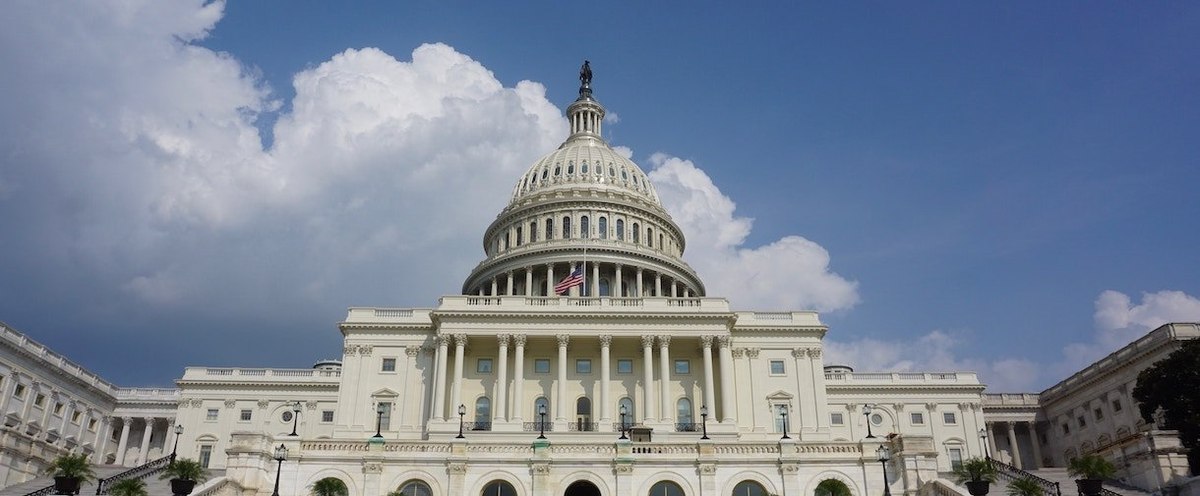Members of Congress have until November 17 to agree to a plan to fund the federal government and avoid a shutdown. The stopgap funding bill proposed by Speaker Mike Johnson and passed by the House of Representatives on Tuesday will fund some federal agencies through January and others through February.
To understand how Americans feel about the broader issue of government funding, a recent YouGov poll asked people their opinions the budget for a variety of government agencies. The poll asked whether 30 agencies should have their funding increased, decreased, or kept the same. Each of the poll's 2,000 respondents was asked about a randomly selected subset of 15 of the 30 agencies.
Most of the 30 agencies get support from more Americans for an increase of funding than for a decrease — though with high percentages backing no change in funding or unsure, there is majority support for funding increases for only two agencies, and majority support for decreases for none. Majorities of Americans think funding should be increased for the Department of Veterans Affairs (57%) and the Social Security Administration (53%). Half think funding for Customs and Border Protection (50%), Immigration and Customs Enforcement (48%), the Department of Health and Human Services (47%), and the Department of Education (47%) should be increased.
Americans are most likely to think spending on the Internal Revenue Service (35%), Central Intelligence Agency (27%), and Environmental Protection Agency (26%) should be decreased. About half of Americans think funding should be kept the same for the U.S. Census Bureau (48%), the Department of Treasury (46%), and the Department of State (46%).
Democrats and Republicans are divided on which agencies should receive increased and decreased funding. For example, while Democrats are 54 percentage points more likely to say the Environmental Protection Agency’s funding should be increased than they are to say it should be decreased, Republicans are 34 percentage points more likely to say it should be decreased than to say it should be increased (+54 vs. -34).
Republicans are more likely to favor decreased funding than increased funding for 19 of the 30 agencies asked about. They are most likely to favor decreasing funding for the Internal Revenue Service (-49), Environmental Protection Agency (-34), Bureau of Labor Statistics (-30), and the U.S. Census Bureau (-30). Republicans are most likely to favor increased funding for Customs and Border Protection (+69), Immigration and Customs Enforcement (+63), the Department of Veterans Affairs (+57), and the Department of Defense (+46).
On the other hand, Democrats are most likely to favor increased funding for the Department of Health and Human Services (+68), the Department of Labor (+63), and the Social Security Administration (+61). Democrats are more likely to favor increased than decreased funding for all 30 agencies in the poll. They are least likely to favor increased funding for the Department of Defense (+1), the Bureau of Labor Statistics (+6), and the U.S. Census Bureau (+7). Democrats and Republicans are closely aligned on the Department of Agriculture and the National Park Service: on net, people identifying with both parties are more likely to favor increases than decreases for each of those agencies.
The poll also asked the Americans who said each agency should receive decreased funding whether spending on the agency should be decreased a little, decreased a lot, or stopped entirely. For most agencies, Americans who say their funding should be decreased are most likely to say it should be decreased a lot.
Americans who favor decreased funding are most likely to say it should only be decreased a little for the National Park Service (40%), Customs and Border Protection (32%), and Department of Veterans Affairs (32%). On the other hand, a majority (54%) of Americans who say funding for the Department of Education should be decreased think it should be stopped entirely. About one in three Americans who favor decreasing spending on the Internal Revenue Service (34%), Environmental Protection Agency (32%), and Drug Enforcement Agency (31%) think their funding should be stopped entirely.
These percentages, though, are among people who say each agency's funding should be decreased in the first place. For each agency, that represents a small minority of Americans: 35% for the IRS, and 27% or less for every other agency polled about.
YouGov also asked Americans whether they had favorable or unfavorable opinions of local, state, and federal government employees. A majority (54%) feel very or somewhat favorably toward local government employees and about half (48%) feel favorably toward state government employees, while only 38% feel favorably toward federal government employees. About half of Americans (50%) feel unfavorably toward federal government employees.
Similarly sized majorities of Democrats feel favorably toward local (64%), state (60%), and federal (58%) government employees. However, while a majority of Republicans (57%) feel favorably toward local government employees, they are much less likely to feel favorably toward state (47%) and federal (26%) government employees.
See the results for this YouGov poll
Methodology: The poll was conducted among 2,000 U.S. adult citizens on two separate surveys from September 28 - October 1, 2023 and September 29 - October 3, 2023, with each survey taken by 1,000 U.S. adult citizens. Respondents were selected from YouGov’s opt-in panel using sample matching. A random sample (stratified by gender, age, race, education, geographic region, and voter registration) was selected from the 2019 American Community Survey. For both polls, the sample was weighted according to gender, age, race, education, 2020 election turnout and presidential vote, and current voter registration status. Demographic weighting targets come from the 2019 American Community Survey. The sample also was weighted by baseline party identification, which is the respondent’s most recent answer given prior to November 1, 2022, and is weighted to the estimated distribution at that time (33% Democratic, 31% Republican). The margin of error for the overall sample is approximately 3%.
Image: Unsplash (Quick PS)







